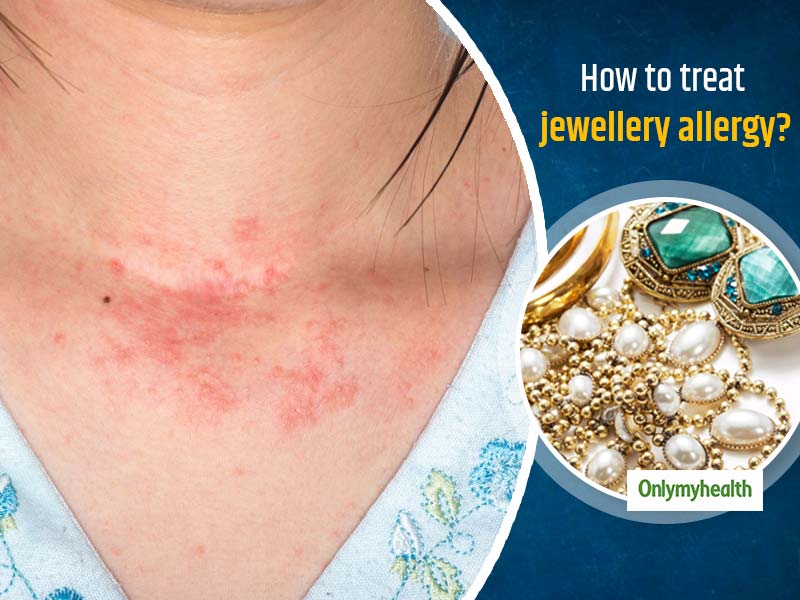
Skin problems and allergies are not easy to treat. Many issues lead to severe bacterial and fungal infections too. It is wise to treat your skin gently by a home remedy or with medical advice. Many people have very sensitive skin which gets affected by stimuli pretty quickly. Did you ever think that flaunting jewellery can also become cause problems to your soft skin? That's right. Jewellery allergy is an existing complication faced by millions of people, caused due the presence of nickel in it. The main point is that artificial jewellery does not suit everyone's skin. Some earrings or necklaces can make your skin itchy and irritated. It may also turn into a rash and redness. This means that you might be allergic to nickel and have to avoid direct skin contact with belt buckles, jewellery, keys, zippers etc. Read further to know about the symptoms and treatment for nickel allergy.
Table of Content:-

Jewellery allergy symptoms
You should realise if your allergy is due to nickel or some other triggers like food items and weather changes. Generally, you will be able to see the signs of jewellery allergy within 12 to 48 hours. The symptoms that you might observe on your skin are:
- Redness or rash
- Itching and irritation
- Dry spots
- Swelling
- Blisters
- Sweating (It can make the allergy worse)
- Pus
Also Read: Citrus Allergy: Symptoms, Foods to Avoid, and More
Jewellery allergy treatment
What to do if your skin has already caught the allergy and there is no turning back? Here is the answer. There are certain precautions and home remedies that can be helpful in such cases. Althought, if the allergy stays for too long and even gets worse, you should see a dermatologist immediately. Here are the ways to treat nickel allergy:

1. Use plastic or leather
As soon as you diagnose that you have an allergy from nickel, the first step should be avoiding it. Buy leather or plastic watchbands, plastic eyeglass frames and switch to plastic or leather coated items rather than metal.
2. Moisturize regularly
Apply moisturizer or soothing lotions on the allergic part of your skin. Calamine lotions might help in keeping the dry patches wet and rreducing the itching on your rash. If your skin has a protective layer of a lotion then it will be difficult for external items to cause infection.
3. Apply aloe vera
Aloe Vera is a tested astringent in treating many skin allergies. The antioxidants present in aloe Vera have healing and curing powers. Aloe vera protects your skin from allergies and also makes it smooth and soft.
4. Avoid nickel rich food items
Food items like chocolates and nuts are rich source of nickel. If you are extremely sensitive to the element, then you should avoid consuming those edibles too. You will make your allergy worse if you do so.

5. Avoid/change your jewellery
Firstly, if you know that you caught an allergy because of wearing jewellery like rings, necklaces, bracelets etc, then avoid wearing those. However, if it's necessary to wear something daily then get it changed by your jeweller and ask him to give a less reactive metal like platinum.
Also Read: Get Rid Of Seasonal Allergies With Curcumin, Know Its Effects And Role In Cure
6. Consult a doctor

Jewellery allergy should be recognised and treated wisely on time, as it can get worse and turn into pus filled blisters if you keep direct skin contact with metal. A skin specialist will tell you to get a skin patch test to check your skin's reaction to nickel. You should definitely visit a dermatologist if you are facing any kind of skin allergies.
(Written by Navya Kharbanda)
Read more on Skincare
Also watch this video
How we keep this article up to date:
We work with experts and keep a close eye on the latest in health and wellness. Whenever there is a new research or helpful information, we update our articles with accurate and useful advice.
Current Version